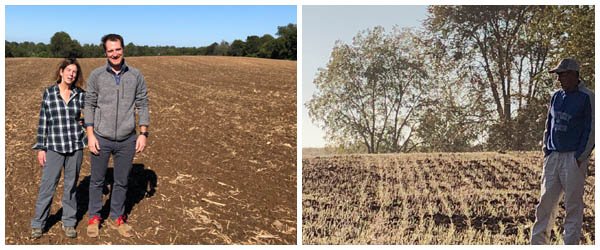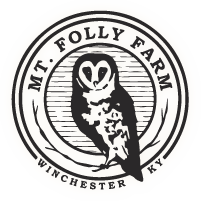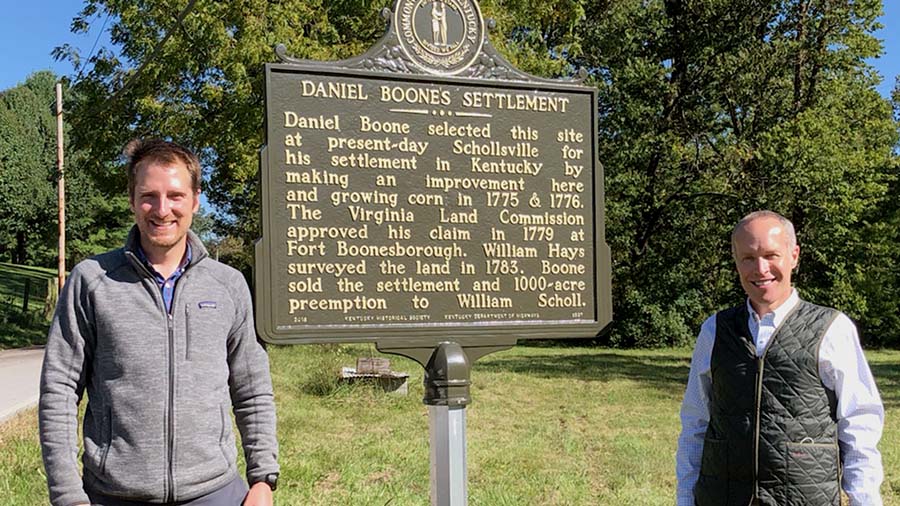Whiskey Rye from Canada? NO!
We are growing it on land once owned by Daniel Boone!
Trailblazer that he was, Daniel Boone chose 400 acres around present-day Schollsville for his settlement and preemption, growing a corn crop there in 1775 and 1776.* More than 2 centuries later, we are partnering with American Farmland Trust to grow Kentucky Rye on Boone’s land, for Kentucky distilleries, including our own Wildcat Willy’s in Winchester.
To meet the times head-on, Mt. Folly’s goal is to become a land-based carbon sink. For several decades, we’ve been developing and using practices which sequester carbon in crop land, pasture, and forest. We’ve learned to farm organically, plant cover crops for soil health and photosynthesis year round, maintain tight rotations for ruminant livestock, collect and compost manure, and plant trees and manage farm-scale timber stands, in our case about 400 acres.
Now comes the time to add small grains such as rye. Because of Wildcat Willy’s we have some experience with the small grain. In 2019, we grew and Hazlet rye, which we are distilling and milling for fall and winter baking.
There is more to a small grain program than just buying the seed and planting it. American Farmland Trust has come along just in time to give us some help, training and knowledge. We couldn’t be more thrilled!
Wednesday, Billy Van Pelt and Scott Franklin of American Farmland Trust came for a visit. First, we had lunch at the distillery with our excellent county agent, Clay Stamm, and reviewed our moonshine and bourbon program. Billy and Scott discussed the new rye initiative, which we’ve joined. It brings together farmers, distillers, conservationists, with the goal of keeping the soil covered in the winter, building organic matter to improve the soil, and developing a new cash crop for Kentucky farmers. Today, most of the rye used at our state’s distilleries comes from northern states, Canada and Europe. We’ll change that.

Laura Freeman and Scott Franklin on the Left, Juan Uresti examining the germinating rye on the Right
Scott is the farmer of the AFT pair. He’s farmed organically in Louisiana and has faced-off with Johnsongrass. He “gets” the difficulty of farming for living soil biology (no herbicides or pesticides) and minimizing tillage, as weed control is necessarily mechanical. We’ve bought a roller crimper, but because of COVID, it was delivered too late to roll down our cover crop this year. We now have partners to learn from for 2021. And American Farmland Trust has a climate initiative. Daniel Boone would approve.

*As a teenager, I was told multiple times that the Schollsville area was “Daniel Boone’s Settlement.” I thought my elders meant “a little village,” and it wasn’t until I became a country woman that I came to understand that pioneers like Boone, who settled before 1778, were allowed to claim only one settlement of 400 acres, and an adjoining 1000-acre preemption. Our rye field is on Daniel Boone’s settlement.


